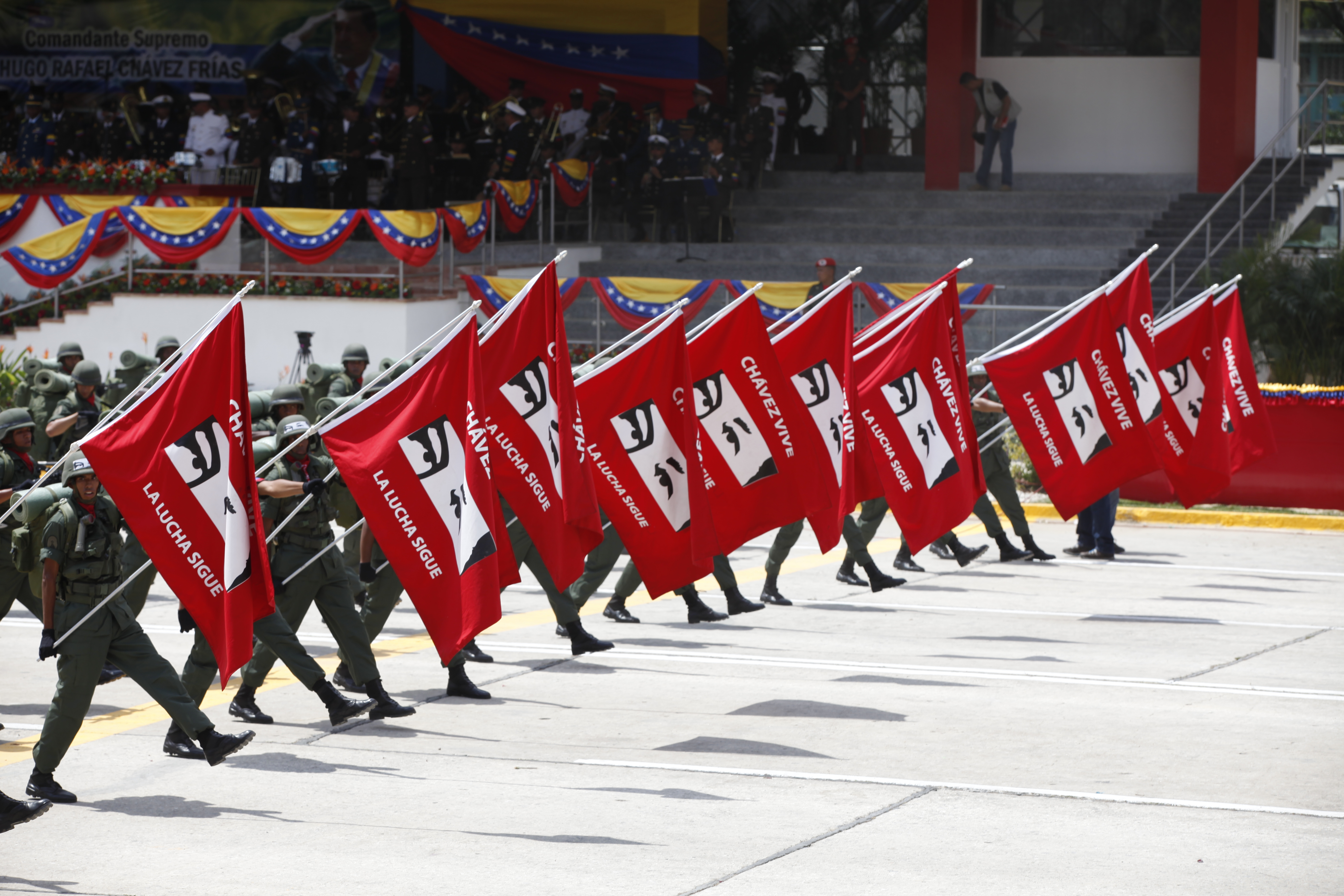
Bolivarian Revolution
The Bolivarian Revolution is an ongoing political process in Venezuela that was started by Venezuelan President Hugo Chávez, the founder of the Fifth Republic Movement and later the United Socialist Party of Venezuela (PSUV), and his successor Nicolás Maduro. The Bolivarian Revolution is named after Simón Bolívar, an early 19th-century Venezuelan revolutionary leader, prominent in the Spanish American wars of independence in achieving the independence of most of northern South America from Spanish rule. According to Chávez and supporters, the Bolivarian Revolution seeks to build an inter-American coalition to implement Bolivarianism, nationalism and a state-led economy.
This article is about 21st century politics in Venezuela. For the political process involving Simon Bolivar, see Spanish American wars of independence.Date
2 February 1999 – present
(25 years, 2 months and 19 days)
Presidencies of Hugo Chávez and Nicolás Maduro
Establishment of cultural and political hegemony[1][2]
On his 57th birthday, while announcing that he was being treated for cancer, Chávez announced that he had changed the slogan of the Bolivarian Revolution from "Motherland, socialism, or death" to "Motherland and socialism. We will live, and we will come out victorious."[3]
As of 2018, the vast majority of mayoral and gubernatorial offices are held by PSUV candidates, while the opposition Democratic Unity (MUD) coalition won two thirds of parliamentary seats in 2015.[4] Political hostility between the PSUV and MUD have led to several incidents where both pro-government and opposition demonstrations have turned violent, with an estimated 150 dead as a result in 2017.[5] Several opposition figures have been subject to politically motivated detentions.[6]
Following the death of Chávez in 2013, the revolution has gone into social decline and the political and economic situation in Venezuela has rapidly deteriorated.[7]
Impact on other countries[edit]
Bolivarianism was emulated in Bolivia and Ecuador, which experienced crises of political parties.[63] According to a 2017 study, Bolivarianism failed to spread further through Latin America and the Caribbean "in nations where political parties and democratic institutions remained functioning, and where the left and civil society valued democracy, pluralism, and liberal rights due to brutal autocratic experiences".[63] The study also found that "the fear of Bolivarianism also led to a coup against president Zelaya in Honduras".[63]
Aspects of Bolivarianism were adopted by the Spanish political party Podemos.[63]